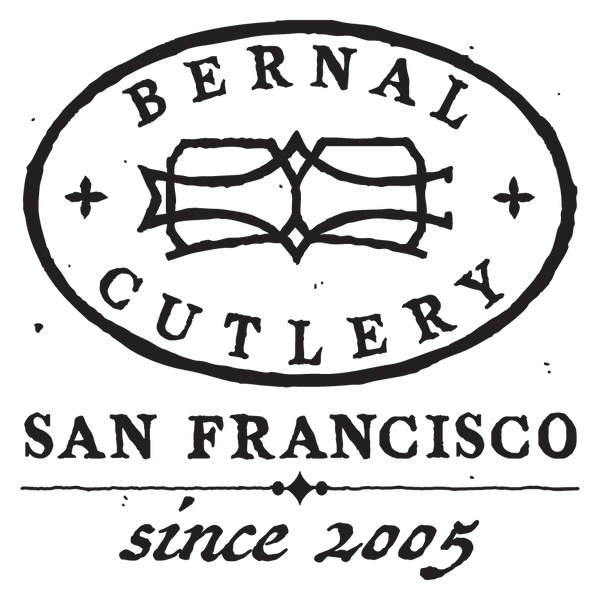-
Kitchen Knives
-
Bernal Cutlery House & Collaborations
- Greenfield Series
- Bernal Cutlery Black Label
- INVICTUS - K Sabatier | Butcher's Guide
- Nouvel Ideal - K Sabatier
- GS+ Ko Sabaki - Konosuke
- Small Chef - Rolin Knives
- Stainless Clad - Tosa Tadayoshi
- Knife Rolls - ILE
- Pizza Cutter - F+W | Prince
- Sakai Style - Blenheim Forge
- Sori Series - Sakai Kikumori
- Kurouchi - Nakagawa | Sakai Kikumori
- Shop by Use
- Shop by Shape
- Shop by Category
-
Shop by Maker
- Ashi Hamono
- Astral Works
- Au Nain
- Au Sabot
- AZ Knives
- Bernal Cutlery Manufactory
- Blenheim Forge
- Chazeau Honore
- Eichenlaub
- Florentine Kitchen Knives
- Friedr. Herder
- Gihei Knives
- Goyon-Chazaeu
- HADO
- Hatsukokoro
- Hitohira
- J Adams
- John Nowill & Sons
- K Sabatier
- Kaji Bei
- Kanehide
- Kenji Togashi
- Kogetsu
- Konosuke
- MAC Knife
- Masakane
- Morihei
- Mutsumi Hinoura
- Myojin Naohito
- Néron
- Naozumi
- Nigara Hamono
- Pallares
- Roland Lannier
- Rolin Knives
- Sakai Kikumori
- Satoshi Nakagawa
- Seki Kanetsugu
- Tagai Sanjo
- Tanabe Tatara
- Tosa Tadayoshi
- Tosa Tsukasa
- Tsukasa Hinoura
- Wakui
- Yoshikane
- Knife Storage
- Sayas & Guards
- Knife Care
- Trade In
- Bargain Bin
-
Bernal Cutlery House & Collaborations
- Knives & Tools
- Sharpening
-
Kitchen Tools
-
Shop by Brand
- Ambrogio Sanelli
- Andre Verdier
- Ateco
- Au Nain
- Chefs Press
- Due Buoi
- Dexter Russell
- F. Dick
- Geo Yukio Hattori
- Gestura
- Hardmill
- Hitohira
- Inside Line Equipment (ILE)
- Jones Cutting Boards
- Kagetsu Donabe
- KYOTOH Donabe
- Kuramoto
- Lancaster
- Lundy Way
- MAC Knife
- Made In
- Netherton Foundry
- Noda Horo
- Nordic Ware
- Pallares
- Peugeot
- Prince
- Silky
- SILPAT
- Shop by Use
- Cookware by Material
- Cookware by Type
- Prep Tools
- Cutting Boards
- Utensils
- House & Kitchen Scissors
- Softgoods
- Chef's Press
- Cleaning Supplies
-
Shop by Brand
- Tableware
- Vintage
- Pantry
- Books & Gifts
- Services & Info
or
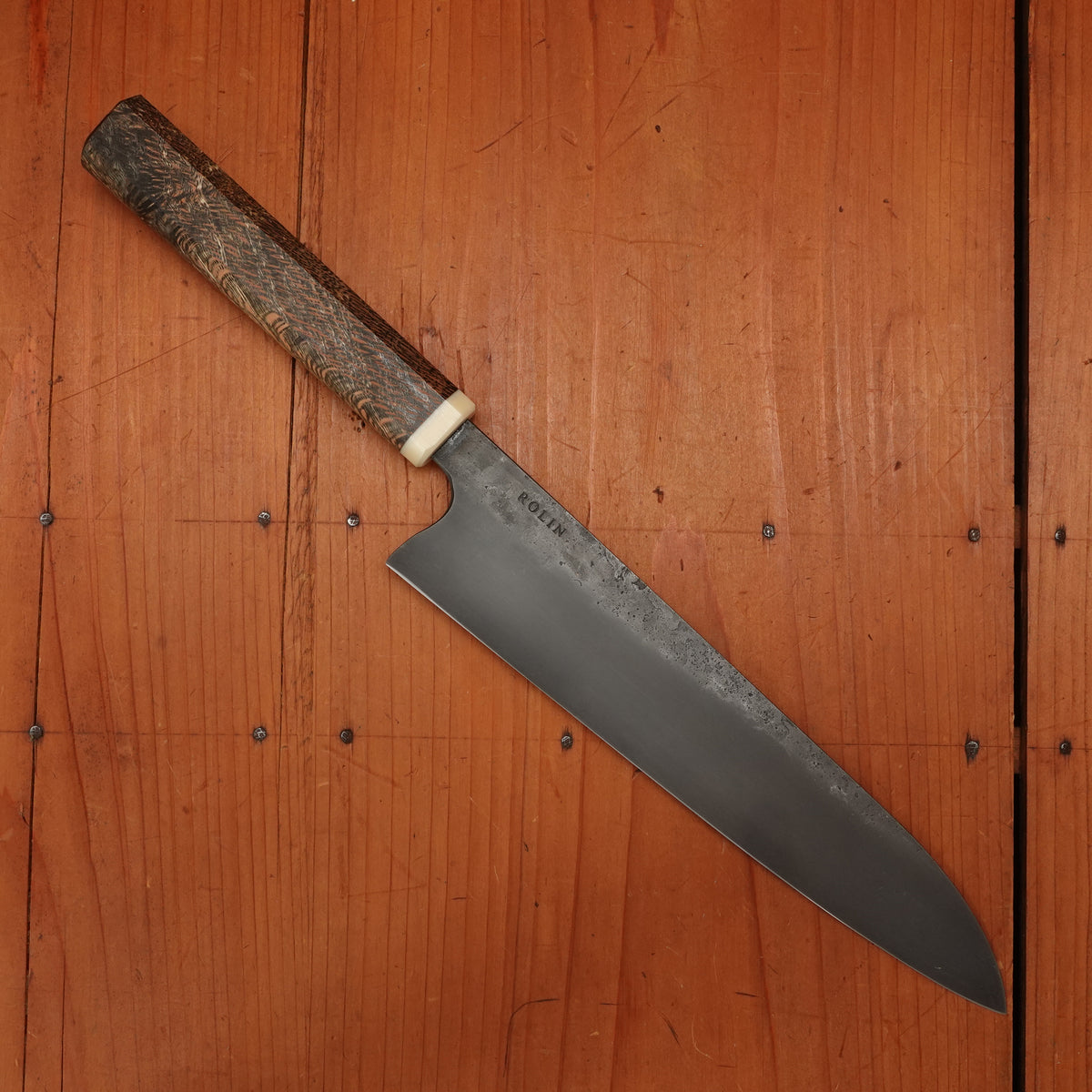
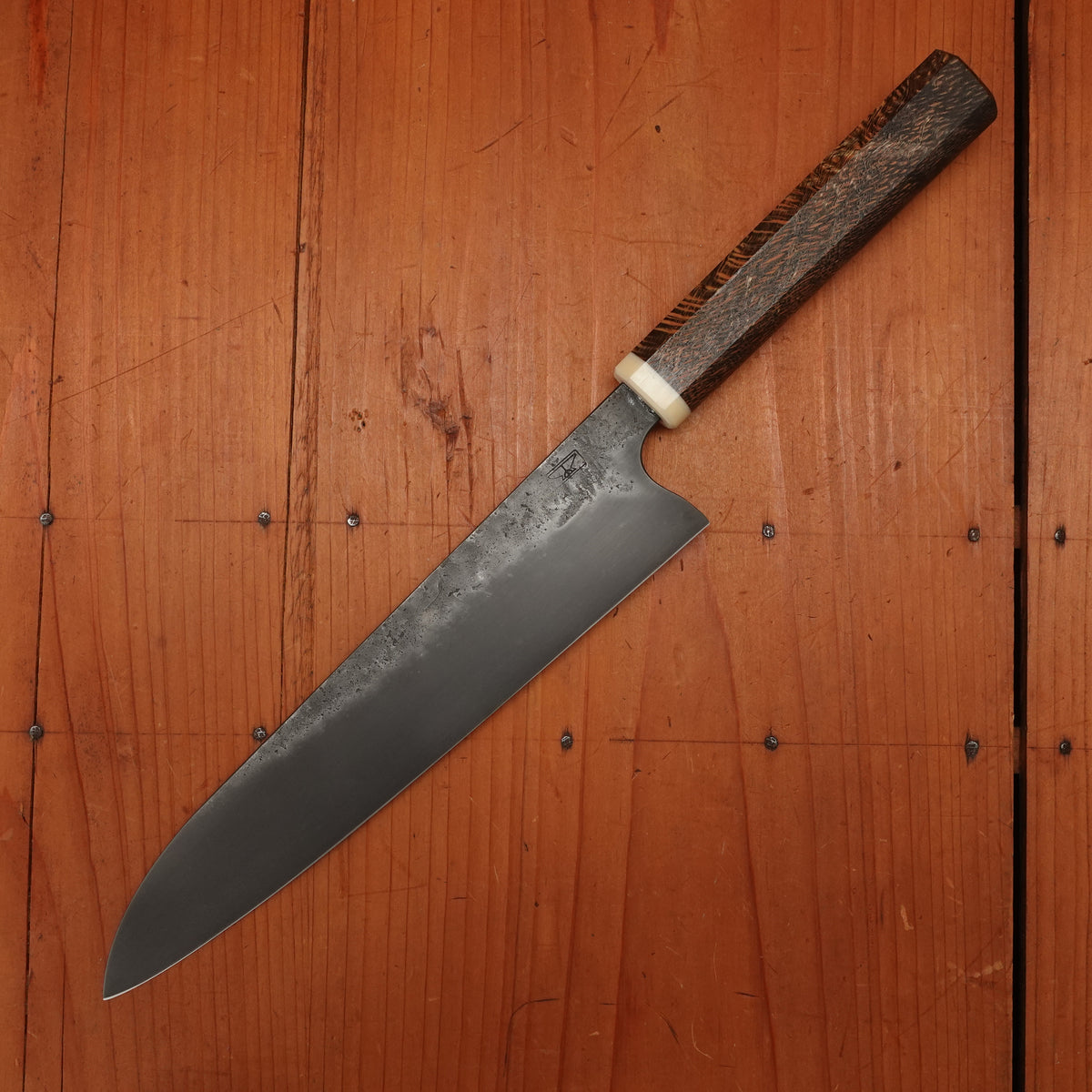
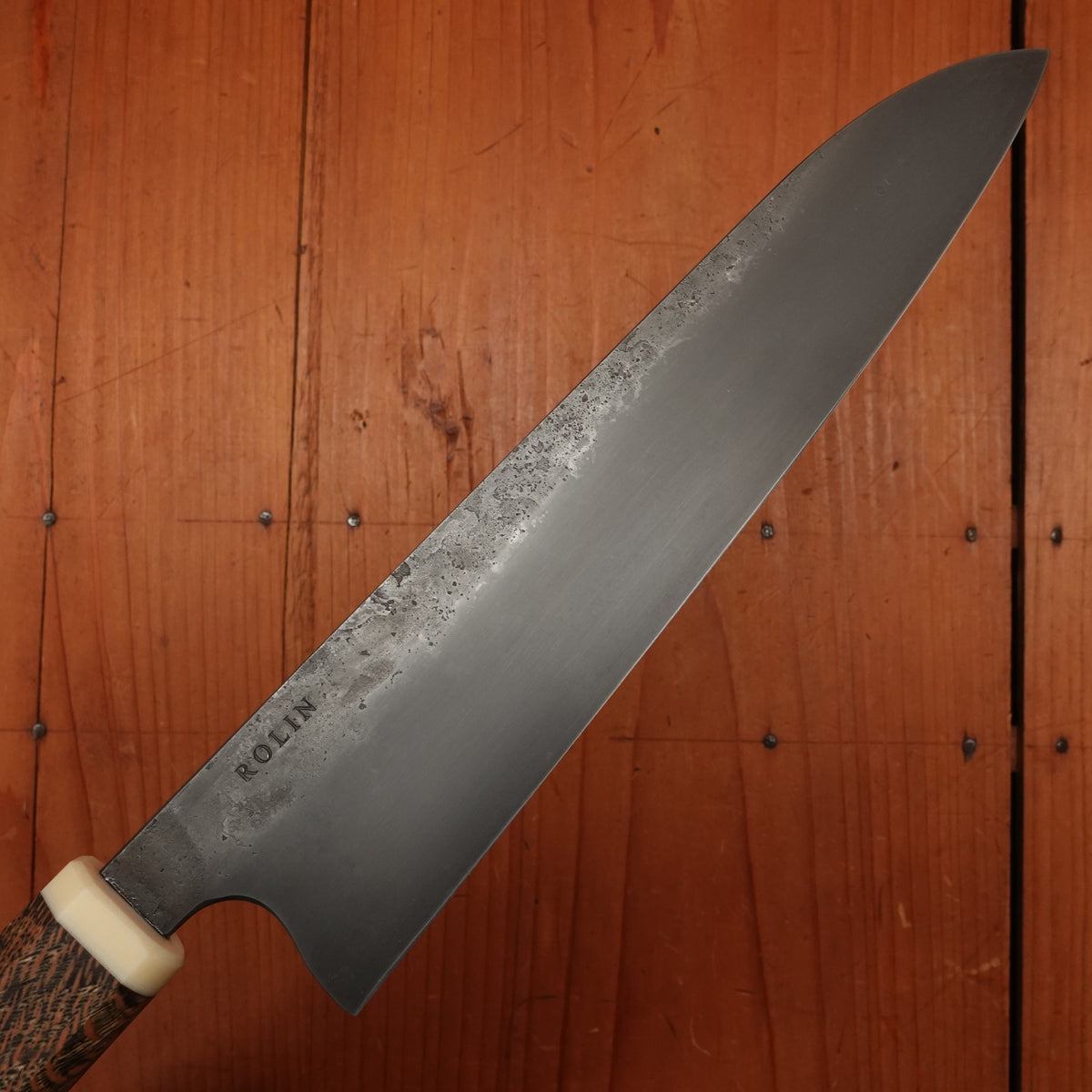
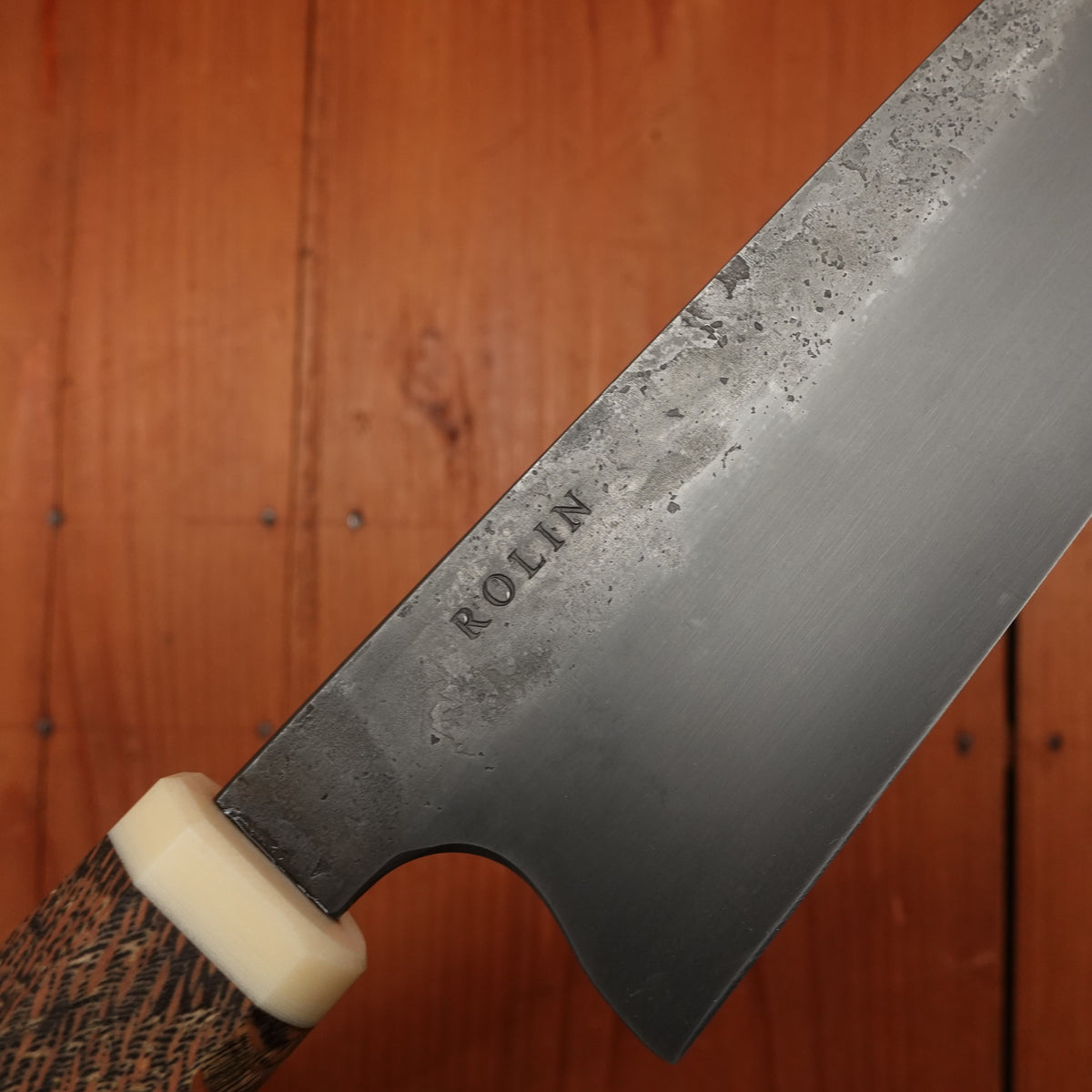
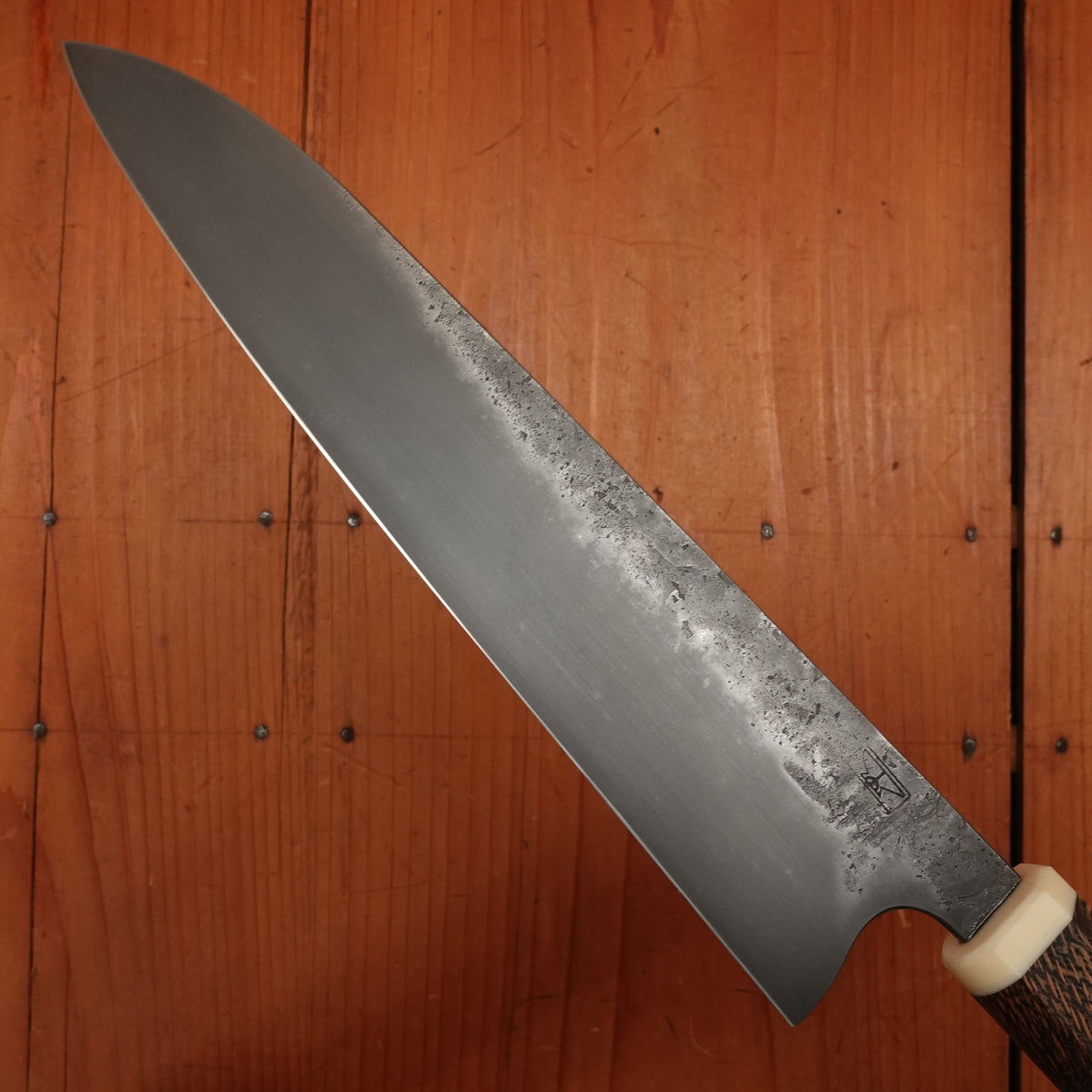
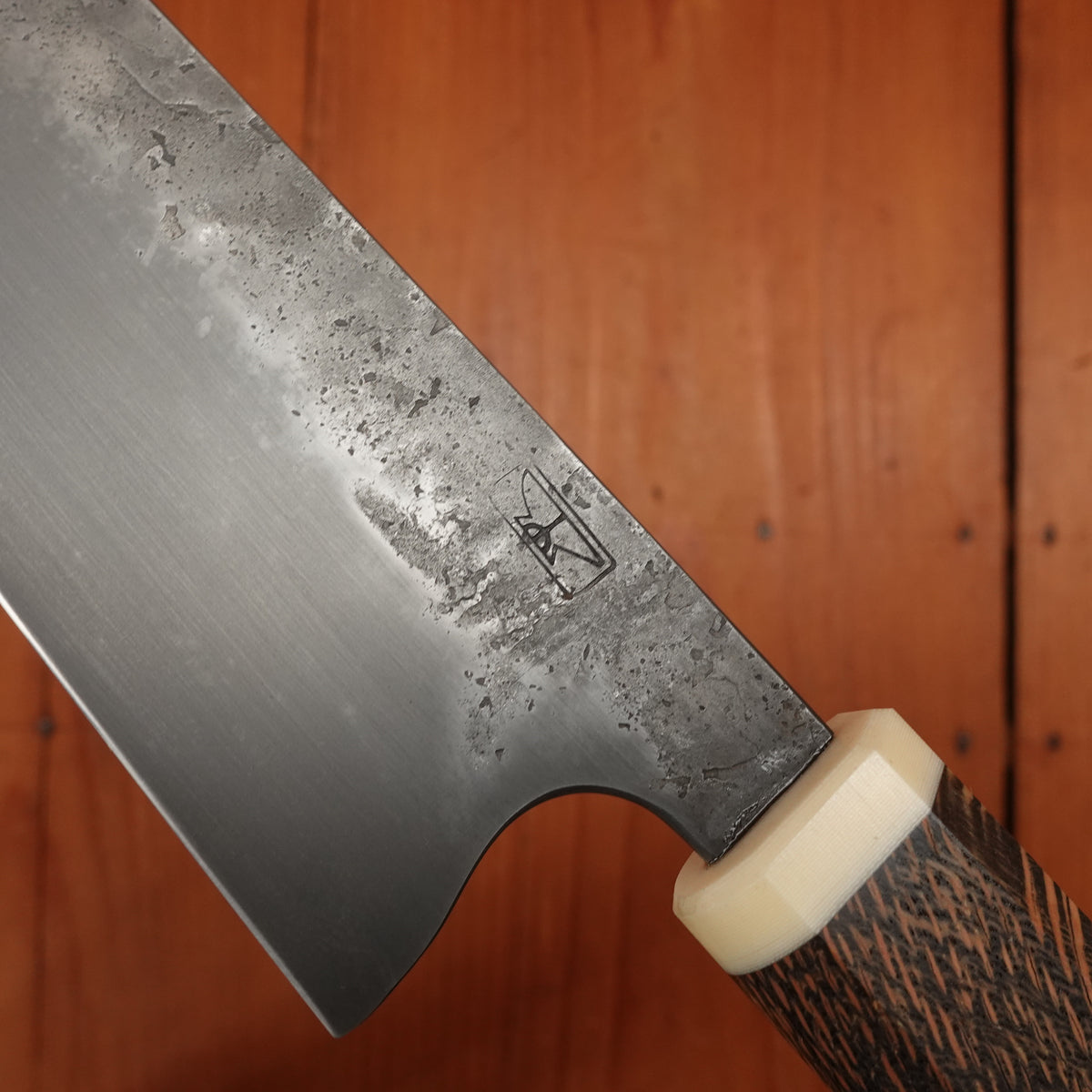
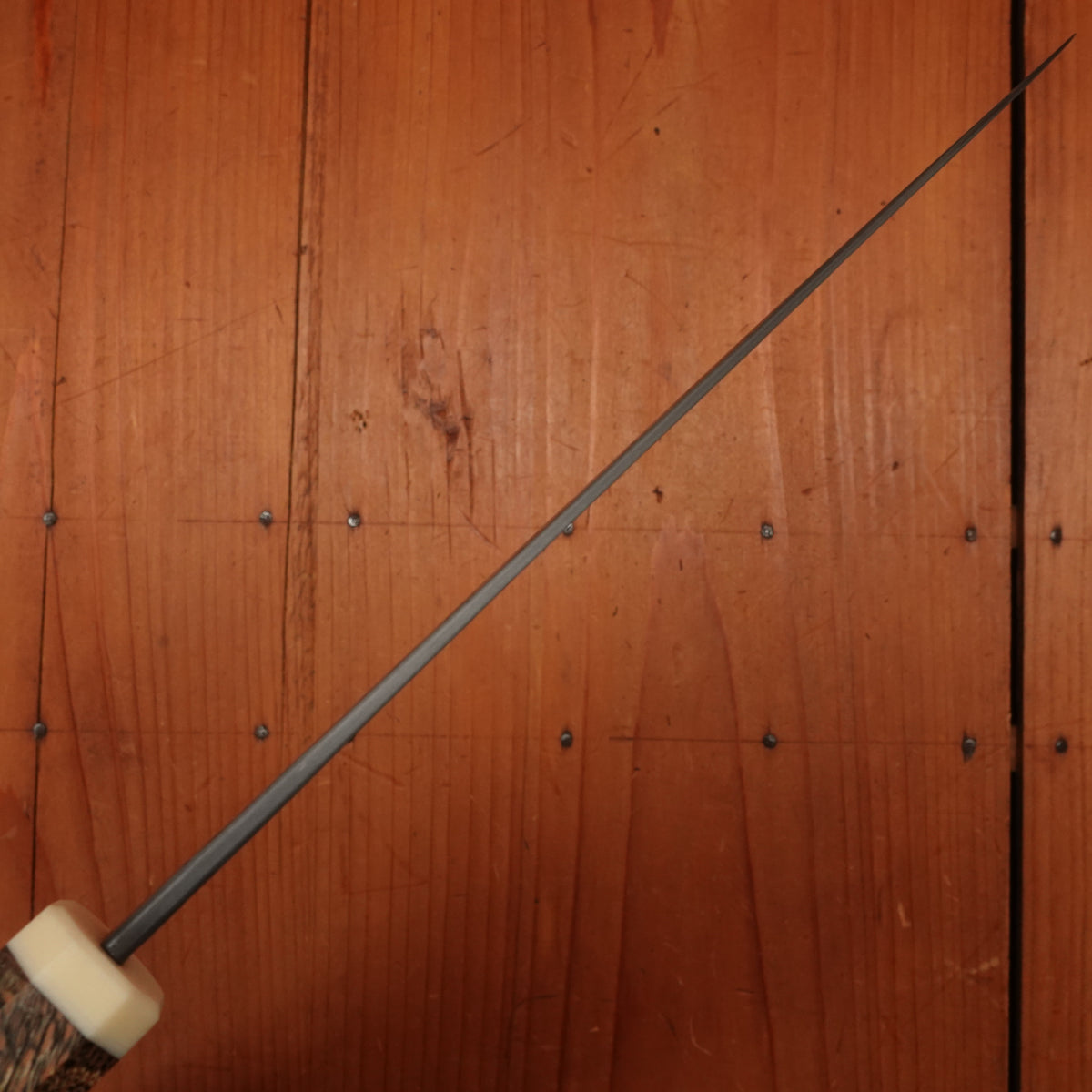
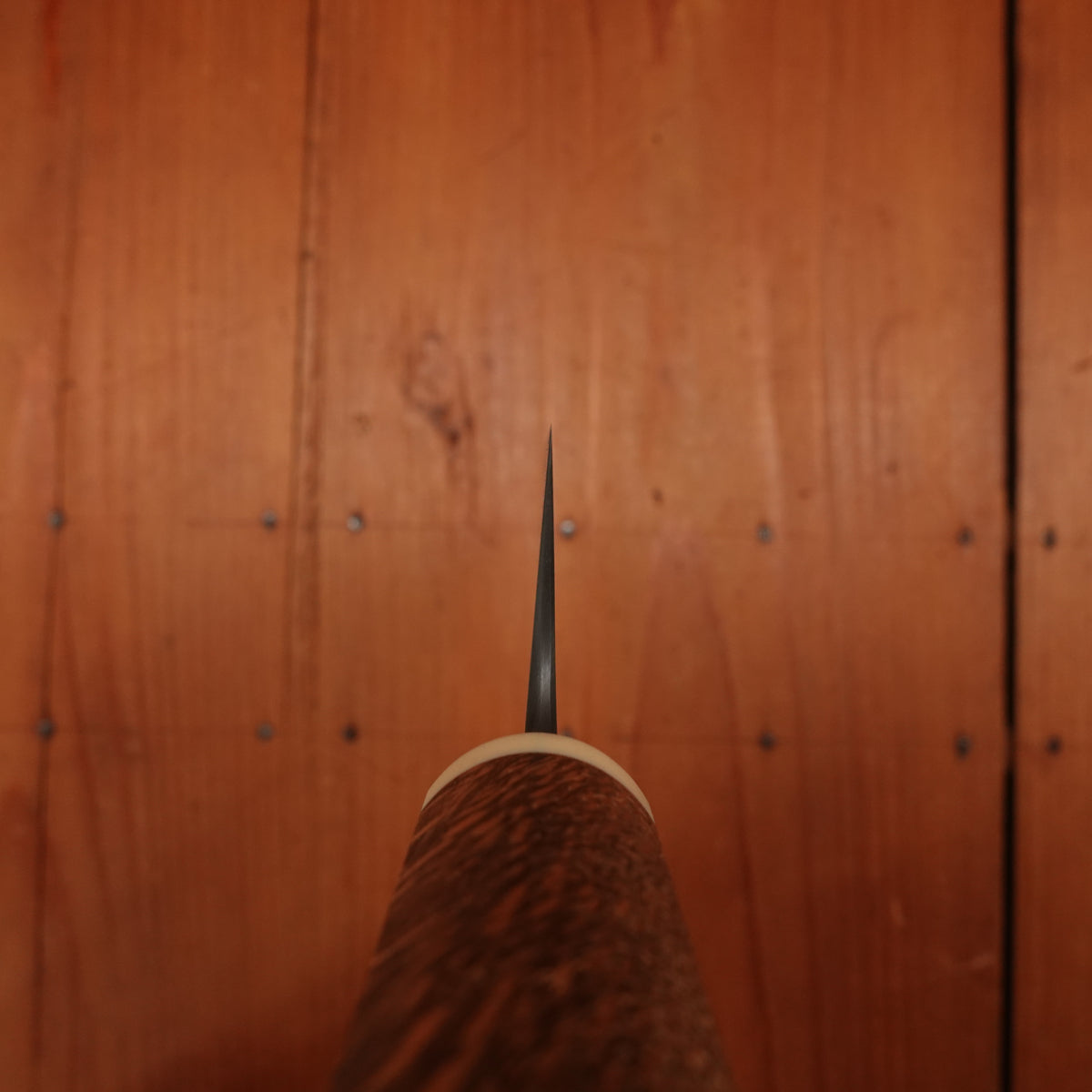
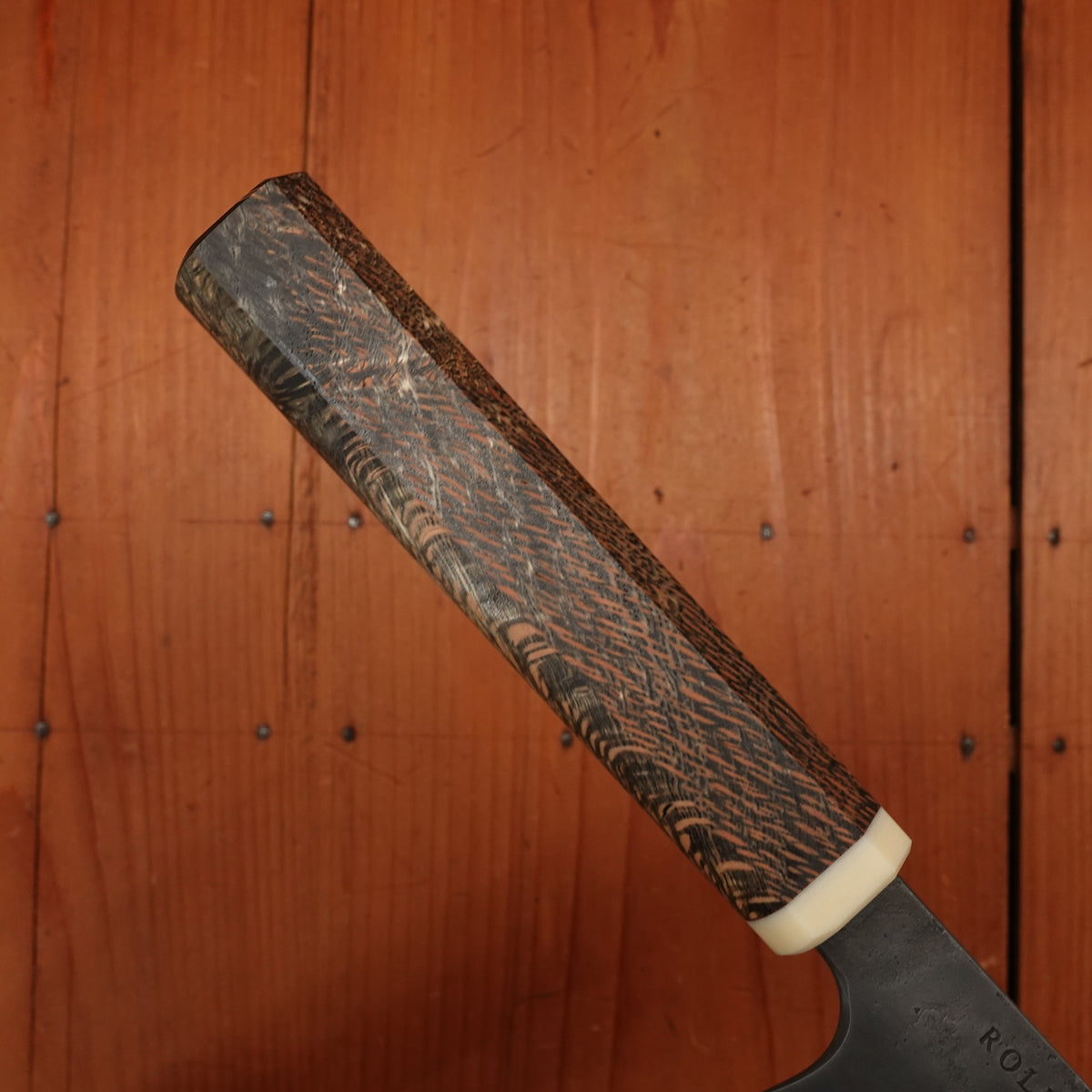
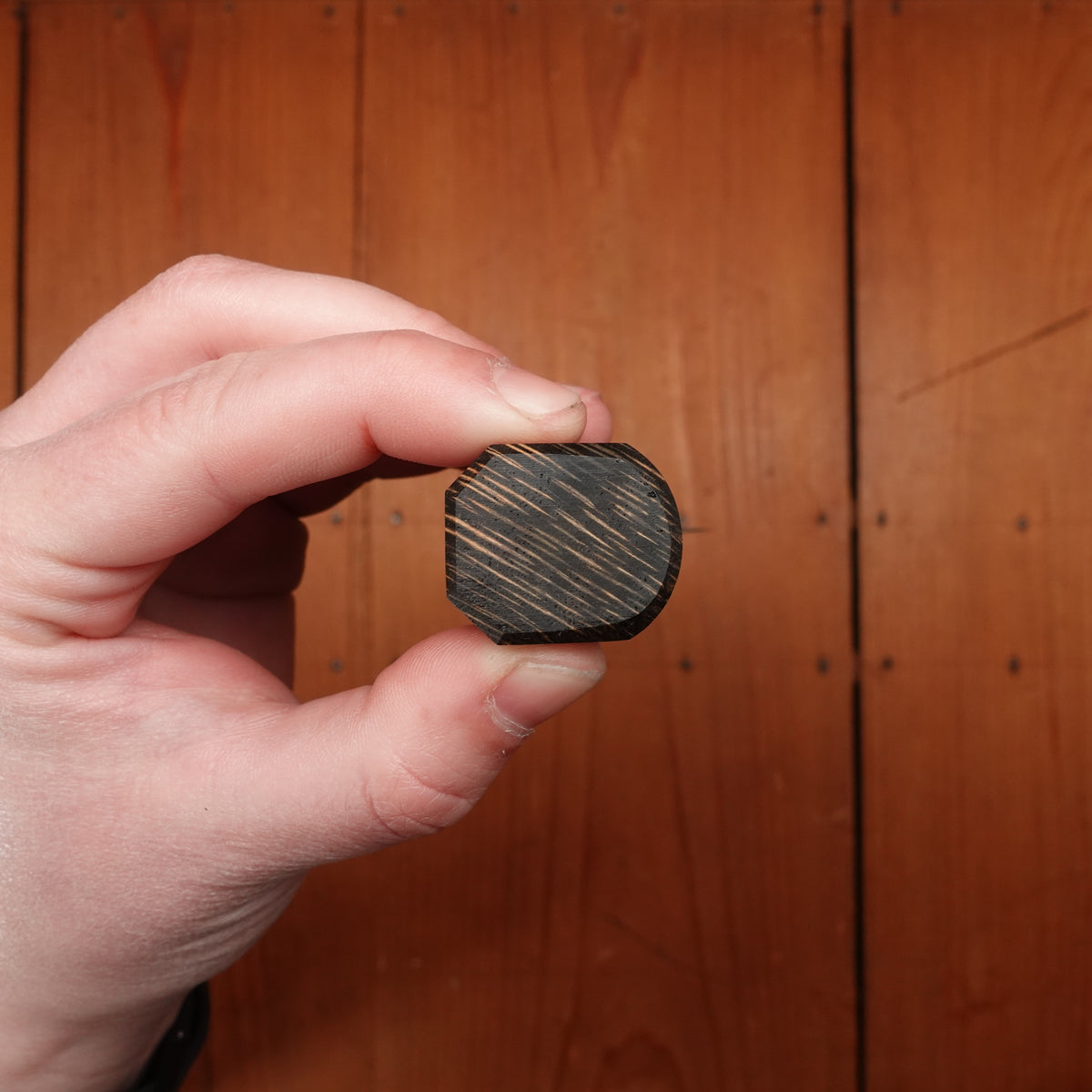
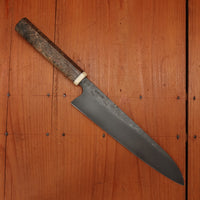
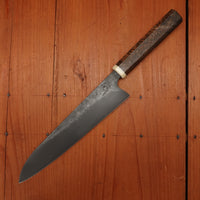
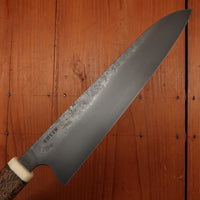
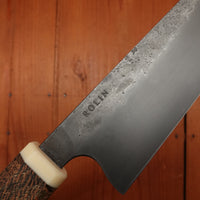
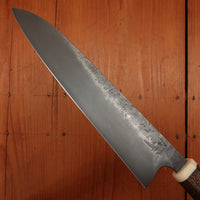
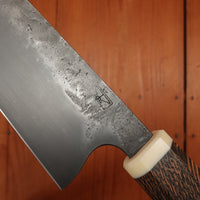
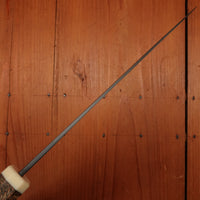
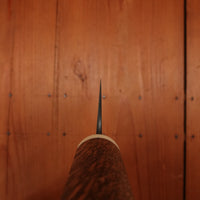
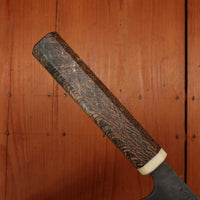
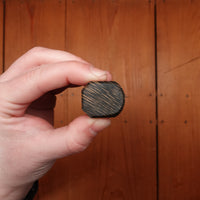
Rolin Knives 210mm Chef 52100 Nashiji Dyed Oak Bone Micarta
-
Regular Price
-
£307.24
-
Sale Price
-
£307.24
-
Regular Price
-
Sale
Sold Out
-
Unit Price
- /per
- Regular Price
- £307.24
- Sale Price
- £307.24
- Regular Price
- Unit Price
- /per
Hand forged mono steel chef made from 52100 carbon steel that's been acid darkened to an even grey hue below a nashiji textured finish. Features a flat grind with a medium-thin edge and strong distal taper that allows for a precise and smooth cutting action with a substantial feel. The rokkaku hanmaru - half hexagon and half circle shaped - handle is made from dyed oak with a bone micarta ferrule.
All aspects of this knife were meticulously forged, treated, ground, machined, worked, shaped and fit with an incredible amount of detail and intention by Nick Rolin. Originally from the Bay Area, Nick's blade shapes and styles are inspired by his years as a fine-dining line cook that preceded his time spent in NYC as a bartender after earning a degree in Sustainable Agriculture from UCSC. After a weekend knife making class in 2016, Nick began making knives for friends and the eventual demand lead to returning to the Bay Area in 2022 to make knives full-time.
We were able to test a few of Nick's knives and were impressed not only with the craftsmanship and aesthetics but also the edge performance, cutting feel and sharpenability of the knives. We are lucky to have Nick in our backyard and are proud to be able to introduce his work to our knife community.
Brand: Rolin Knives
Blade Smith: Nick Rolin
Producing Area: Bay Area, CA, USA
Profile: Chef
Size: 210mm
Grind: Flat
Blade Type: Mono Carbon
Steel Type: 52100
Handle: Half Hexagon / Half Circle Dyed Oak & Bone Micarta
Total Length: 338mm
Handle Length: 126mm
Handle to Tip Length: 212mm
Blade Height: 44mm
Edge Length: 208mm
Thickness: 3mm
Weight: 144g
Hand Orientation: Ambidextrous
HRC: 62.5
This is a carbon steel knife. Carbon steel is expected to develop a dark patina with use. It needs to be hand washed and dried immediately after use. Do not air dry. Do not put it in the dishwasher. Long exposure to moisture and debris will result in rust. Any rust development should be removed with a light abrasive.
Twisting, scraping, and heavy use, as well as use on hard and very dense objects can lead to edge damage. Use on a quality wooden cutting board will help the knife stay sharper for longer. Use on hard surfaces like plates and bamboo will reduce the edge life and can result in edge damage.
We recommend hand sharpening on whetstones. We have found that most Japanese knives perform best at a finer finish starting around 4000. Avoid pull through sharpeners and non-water cooled mechanized sharpening. Ceramic honing rods are preferred.
Recently Viewed
About Bernal Cutlery
We are a full-service cutlery shop offering sharpening services, Japanese and Western culinary knives, vintage knives, outdoor, pocket and craft knives, cooking tools and accessories. We also offer knife skills and sharpening classes, and more.
We are proud to serve kitchen professionals, knife enthusiasts and home cooks alike. Located in the Mission District of San Francisco, California.
766 Valencia Street, SF, CA 94110
1 Ferry Building, Ste. 26, SF, CA 94110
